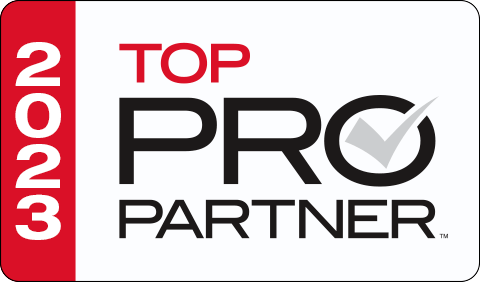
When it is time to replace your furnace there is nothing more important than your selection of a heating dealer. If you choose poorly it makes no difference what brand furnace is installed, its efficiency rating, or what price you paid. When all is said and done it is not the furnace manufacturer who will come to your home to resolve any problems, it is the dealer you have chosen. A little extra time spent up front may save you years of anguish in the future. Ask anyone coming to your home the following questions:
1. How long has your company been in business?
This is a critical question. If you want proof, go to your local library and find a copy of the Yellow Pages for five, ten, or fifteen years ago. You will find very few dealers listed in the older books who are listed today. Heating dealers come and go on a regular basis. Disgruntled employees leave an employer, set up their own shop, and go out of business more often than most people can imagine. If your installing dealer is out of business and your furnace stops working on a below zero night, who are you going to call? While it is true that long time companies have problems and go out of business, it is much less likely than a company that has been in business less than five years.
2. Is your firm licensed to do business in my community?
You would be surprised to find how few heating dealers are licensed to do business in all the towns in which they perform work. Many states don’t have universal licensing which means licenses are required in each and every city. In some metropolitan areas a dealer might find it necessary to obtain 50 or more licenses on an annual basis. Each license costs $ and the chance of getting caught on the job just isn’t that great. This savings may be passed on to you by the dealer but the money you save today might cause you long term problems over time. Some cities have special educational requirements intended to insure worker qualifications. If your dealer’s workers don’t meet the standards, do you want them working in your home?
3. Does your firm pull a permit on each and every job it does?
This question is closely linked to the second question. If a company isn’t licensed it cannot pull a permit in your locality. A licensed contractor might not pull a permit in order to keep costs down. In some municipalities permits cost as much as 2 ½% of the job’s cost. If a permit is pulled, an inspector from the municipality will check the work done by the company to insure that all mechanical codes have been followed and there are no safety violations. Should the work be substandard, the dealer will be compelled to return to fix any violations if it intends to remain licensed. Most municipalities also have a performance bond with the contractor for your protection.
4. Does your firm do its own work or does it use subcontractors?
Most reputable heating dealers do their own work. Exceptions to the rule would be for parts of the job that might require a special license like electrical work, plumbing work, asbestos abatement, or other trades necessary to deliver a finished job to you. A heating company that subcontracts its primary work out does so to save money but loses control of job quality very quickly. The workers employed by the subcontractor may be poorly trained or may not have been checked for drug use or criminal background problems. Worse yet, subcontractors are paid by the job for the work they do which encourages them to take short cuts to get the job done as quickly as possible.
5. How long have your workers been with your company?
Every company has new employees but good firms should also have some long term employees about whom they can talk with you. Employees stay with companies for a long time when they are receiving what they need to succeed. Money and a complete benefits package are just two components of what an employee needs. Training is a big part of the package as well. Dealers who keep their employees a long time tend to spend a great deal of money on keeping the workers’ skills up to date. Technology changes and employees have to stay up to date or they will not know how to install the latest products properly. Furnaces today are significantly more complicated than furnaces from ten, fifteen, or twenty years ago. Some of the original warm air furnaces weren’t much more than a controlled bonfire. Some of today’s furnaces have microprocessors incorporated in their controls. Make sure the workers on your job will have the necessary skills to complete the job properly.
6. Are your installation and service technicians NATE certified?
Old furnaces often start to make some strange noises as they get toward the end of their life. Have you heard any banging, popping, rattling, or squealing noises coming from your furnace? Another noise is when you hear the furnace blower running excessively. Does your blower turn on & off frequently or does it blow cold air sometimes? If so, this is a sign that your furnace may need to be replaced.
7. What happens if my furnace needs repairs at night or on the weekend?
The typical work week is just 23.8% of the whole week which means that it is about three times as likely to fail in the evening or over the weekend as it is to fail during normal business hours. That may not be a problem in October or March but it could be life threatening in January. Reputable dealers will have 24 hour a day emergency service during heating seasons.
8. Do you have references?
Old furnaces often lack the ability to moisturize and clean the air in your home. Your house air may feel stuffy or stale. Does anyone in your family suffer from allergies to airborne dust, mold, pollen, viruses or dander? Or does anyone suffer from dry nose, dry throat, or dry skin? Other signs may be frequent dust accumulation, static shocks, drooping plants, furniture cracking and musical instruments that do not stay in tune. These signs all suggest that your old furnace is not capable of providing you with the comfort you and your family may want.
9. Are you affiliated?
Heating dealers have a number of local and national organizations with whom they can become affiliated. Most of these organizations have codes of conduct the dealers pledge to follow. Affiliation with organizations like the Air Conditioning Contractors of America (www.ACCA.org), the Better Business Bureau, the local Chamber of Commerce, and the local heating and air conditioning association entail costs to the dealer but provide benefits to the consumer. An affiliated company is proud of those connections. If you ask you might even find that principals in the firm have been selected as officers of one or more of these organizations because of their skills and dedication to customer service.





















